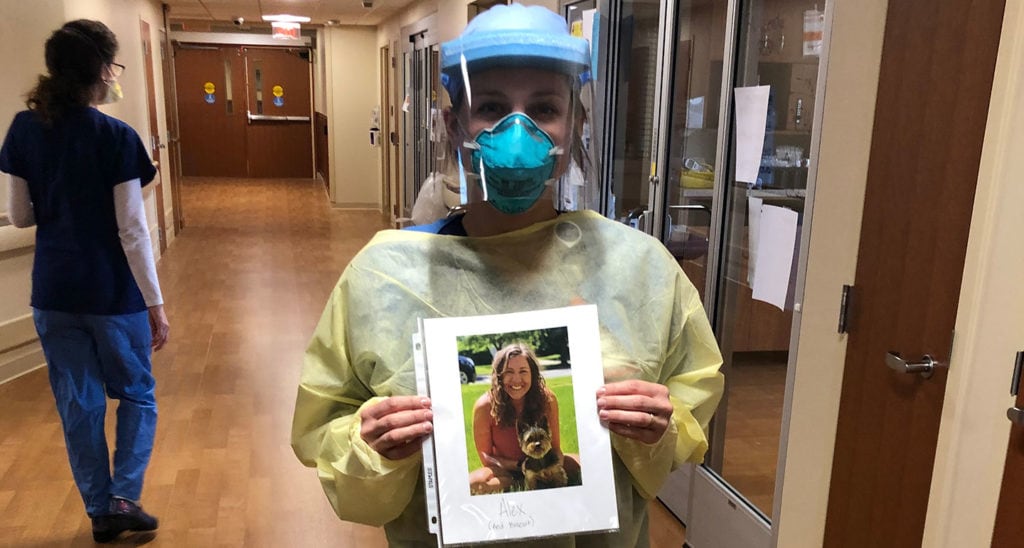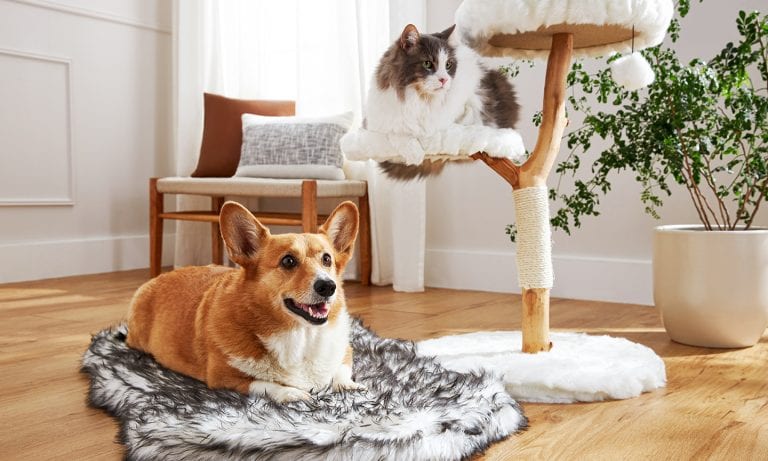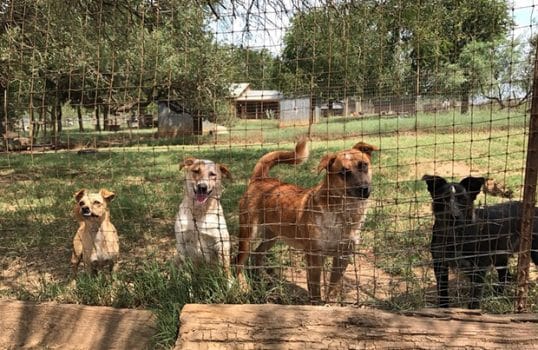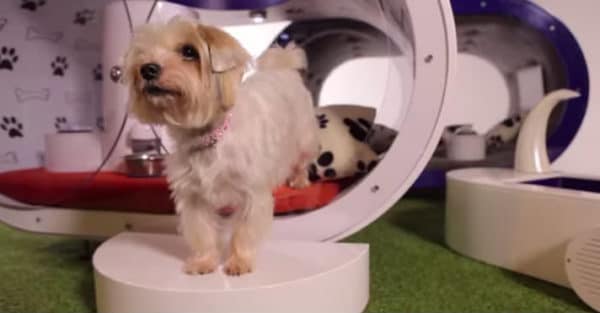Alexandra Finch has often used her dog Seabiscuit as a conversation starter. So when the ICU nurse noticed that her personal protective equipment (PPE) was getting in the way of her relationships with her COVID-19 patients, she knew just what to do: She began wearing a photo of Seabiscuit and herself on her rounds.
“I’m covered from head to toe, apart from my eyes,” says Finch, who works at SSM Health St. Mary’s Hospital in Madison, Wisconsin. It’s a necessary safety precaution to keep frontline workers safe, but “it’s really hard to tell who we are when we’re all garbed up. And you can’t see my smile behind my mask.”
Finch knew that her patients, separated from their loved ones, needed that human connection. Now, they’re finding it in Finch’s photo, which shows her holding Seabiscuit, a 12-year-old Silky Terrier with perky ears and a pink tongue adorably peeking out of his mouth.
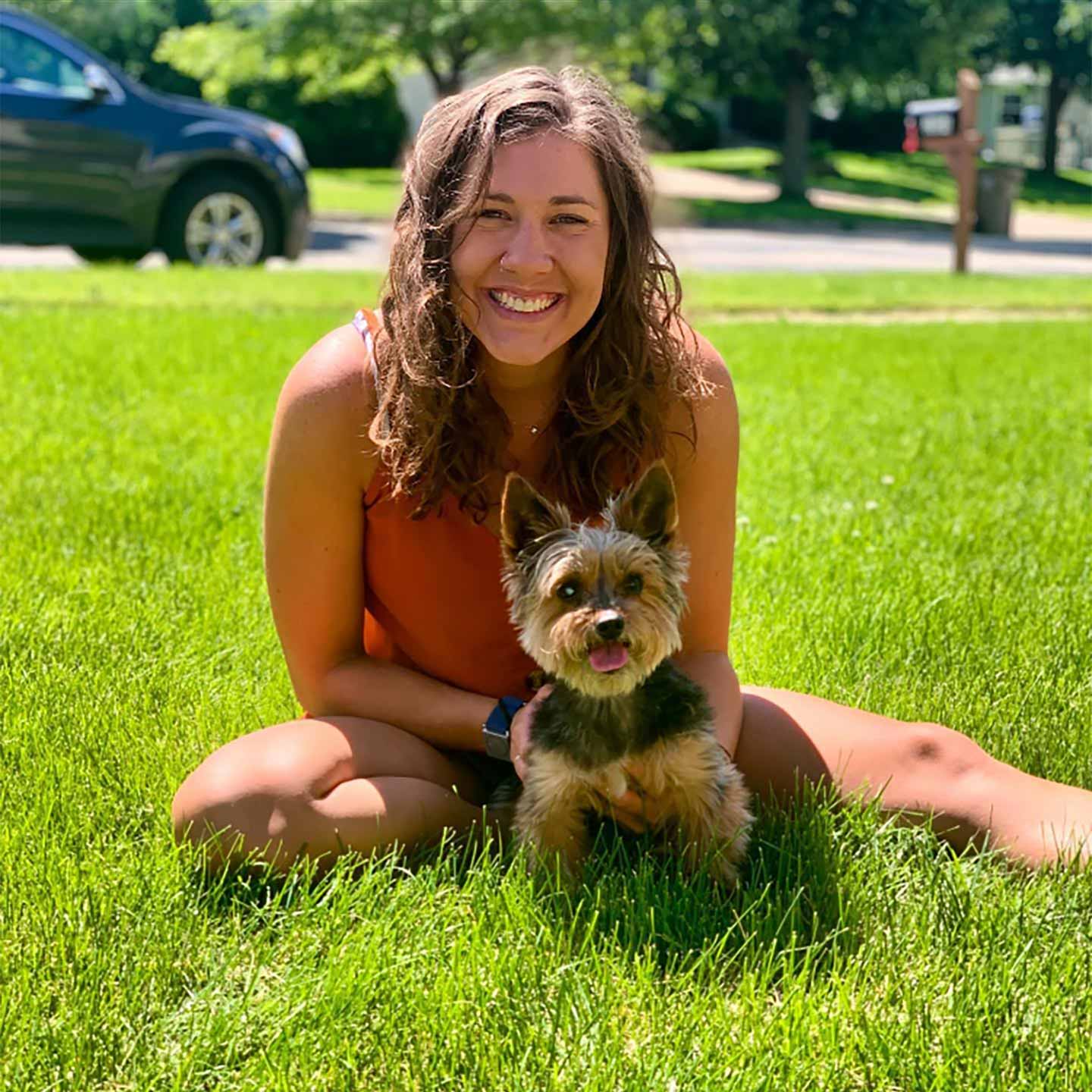
Courtesy of Alexandra Finch
“I use the picture to feel a little more connected,” she says, “and show my personality, so my patients can know more about the person caring for them.”
That makes a huge difference, she says, especially for COVID-19 patients who aren’t allowed to receive visitors. “I think that’s one of the hardest things. They feel like they’re going through this alone. We’re trying to combat that as much as we can by being present and connected.”
And what better connection than through the sweet, floofy face of a pup? Seabiscuit has been one of the first things Finch’s patients see as they recover. “As people begin to heal and come out of sedation, they come to recognize the picture. Then when they get well enough that they can have a conversation, they always ask about Biscuit,” she says.
It helps that Finch loves showing Seabiscuit off. “I could talk about him forever,” she laughs. She has about a dozen nicknames for him—"he goes by Biscuit, or Tiny, or Little B, or You,” she laughs—and loves taking him for walks and kayak rides. Biscuit has been with Finch since her graduation from high school. “When I first moved away from home and started college, it was just him and I,” she says. “I actually practiced my nursing assessments on him!”

Courtesy of Alexandra Finch
Seabiscuit isn’t just helping patients at St. Mary’s. He’s also helping Finch through this stressful time.
“Sometimes I come home so excited because a patient was able to move from the ICU. Other times I just need to cry and hug him and hold him,” she says. “No matter what, Biscuit greets me at the door. If I come home happy, he wants to play. If I’m coming home tearful, he just sits with me. If I’m tired, he’ll curl up with me. He reads the energy and it’s helped me so much.
“He’s just my favorite little guy,” she adds. “We’ve been through so much together.”
And in the meantime, Finch and Biscuit have started a trend. Many of her colleagues at St. Mary’s have also started wearing personal pictures on their PPE.
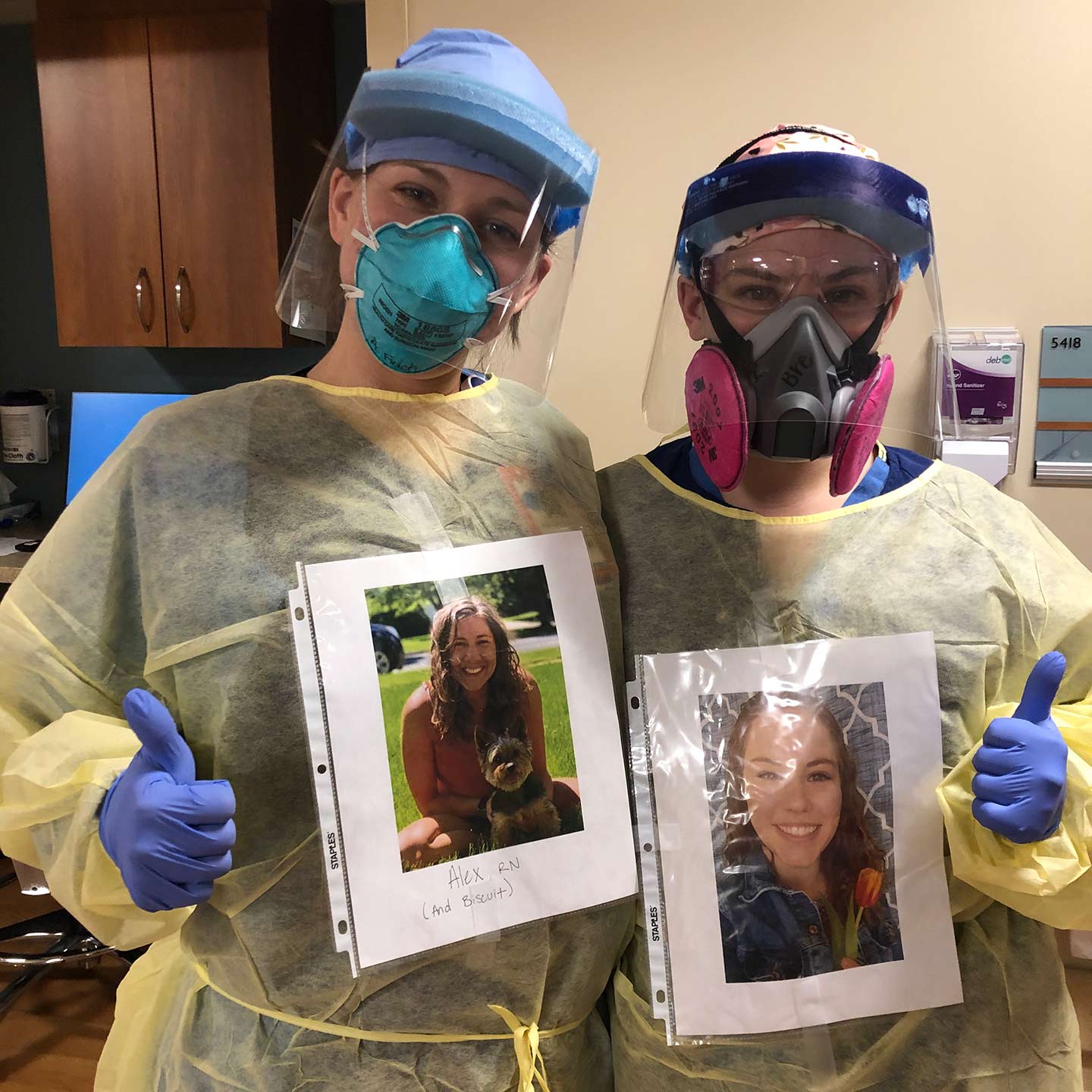
Courtesy of Alexandra Finch
It’s a source of comfort—not just for patients, but for their loved ones too, Finch says.
“For people who can’t be here right now, it helps to know that we’re not just caring about the virus,” she says. “We’re not just caring for the body. We’re caring for the well-being, too.”
Share:
